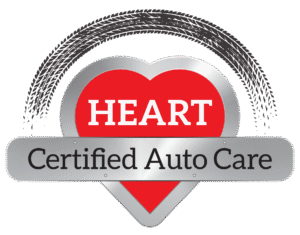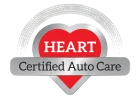Whether you’re a seasoned or a newbie driver, you probably already have an idea of the essential maintenance routine required to ensure that your car runs efficiently. But let’s talk about one of the most important tasks that often gets overlooked – oil change.
An oil change prevents unexpected issues which can lead to serious accidents along the road. Here’s how:
- Oil change lubricates the engine and its moving parts and lessens wear and tear due to friction.
- removes accumulated dirt and particles from the engine’s components and
- extends the life of your engine
While most vehicle experts recommend changing the oil every 3 months or every 3000 miles, that’s not always the case. Some cars allow less often oil changes, so it’s best to refer to your car’s manual for a more accurate recommendation.
If you are planning to bring your car in for an oil change and are wondering what procedures are involved in the process, the next section will give you an overview of what usually happens during a full-service oil check in Northbrook, IL.
What Do Mechanics Check During An Oil Change?
During an oil change, the mechanic will change your car’s engine oil, which can either be conventional or synthetic. Don’t worry if you are unsure which oil to use. Rely on Heart Auto Care technicians to identify which oil is best for your vehicle.
Aside from the complete oil change, most oil change service providers will also perform a courtesy inspection on your vehicle to detect potential issues and help it to run smoothly and reliably for a long period of time. Here are some:
- Inspect the fluid levels in your car, including wiper fluid, anti-freeze/coolant, power steering fluid, and transmission fluid, and top them up when necessary.
- Check if all the car lights are working.
- Check if the pressure of all of your tires is adequate and check for any damage.
- Check the belts and hoses and replace them as needed to prevent dangerous and costly breakdown.
- Inspect your car’s steering and suspension system.
- Check the air filter, oil filter, and cabin filter and replace them if necessary.
- Make sure that the breathers of your car are working properly.
- Ensure that your car battery is not swollen or damaged.
- Perform a visual brake check to ensure that your vehicle is safe to drive.
- Detect if there are any leaks or spills.
- Visually inspect the car for any damage.
What Else Is Performed With Oil Change
Aside from oil change and the inspections mentioned above, there are a few things that are also performed during a full-service oil change:
Engine Tune-Up
An engine tune-up will ensure that all of your components that affect performance are inspected, fixed and replaced to improve your car’s performance. A typical tune-up service includes:
- replacement of worn or faulty components such as spark plugs and coil boots,
- throttle body and fuel system cleaning, and
- ignition time and idle speed control adjustment.
Lubricate Chassis
If needed, your auto technicians will also lubricate the chassis during an oil change service. Chassis lubrication prevents parts of the chassis from enduring too much friction, which causes wear and tear. By lubricating the chassis, your engine will be protected from damage and increases the life of the parts.
Keep in mind that while most of these inspections and maintenance tasks can be done on your own, bringing your car to a certified technician will save you time and ensure that everything is in the correct working condition. An expert oil change service will give you the peace of mind that your car is running at its best.
Schedule Your Next Oil Change In Northbrook
HEART Auto Care is a trusted auto care professional in Northbrook, IL. Our team of professionals will assist you in making the best selections for your car. Contact us for more information about our oil change service.





